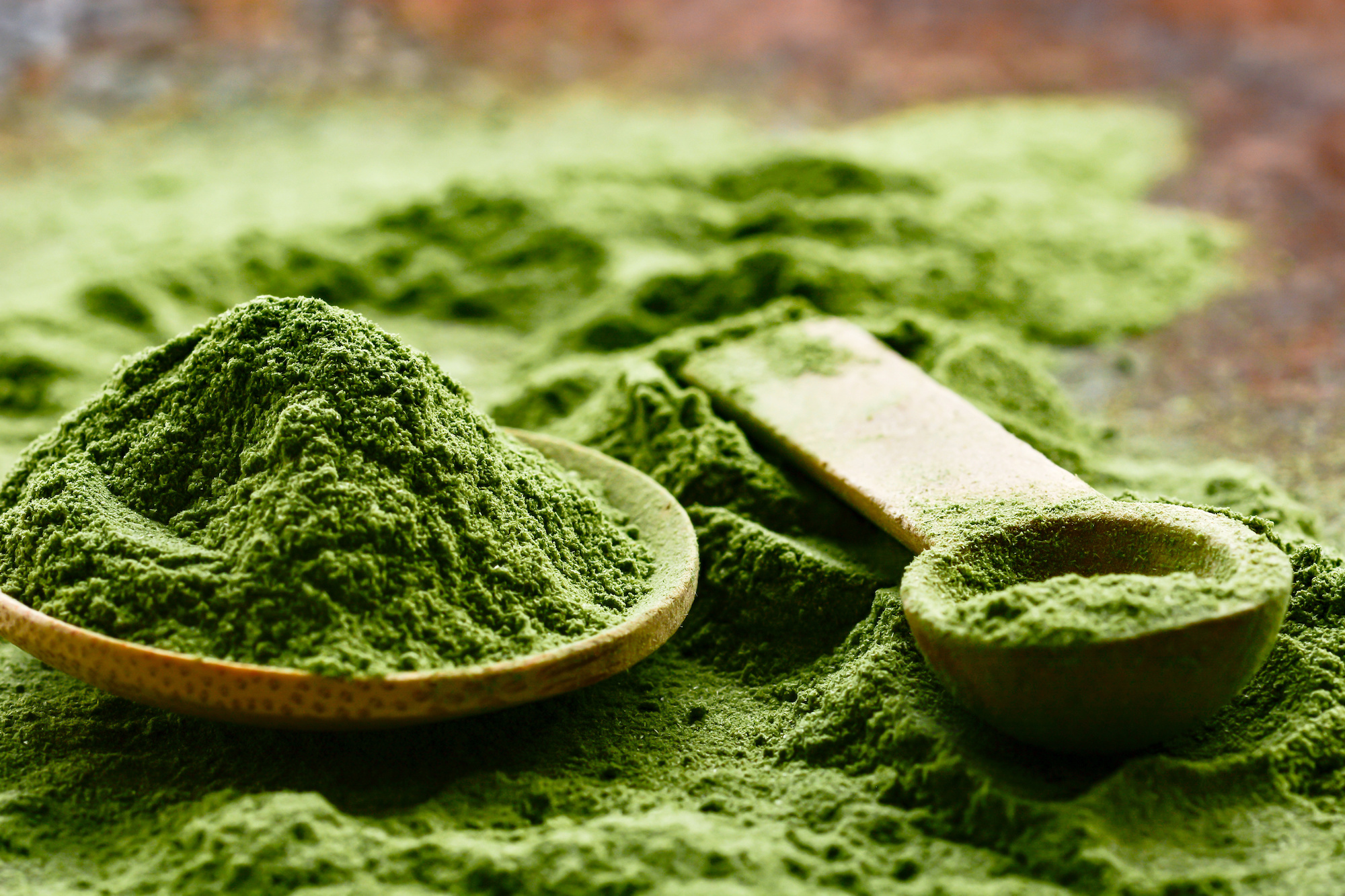Are powdered greens good for you?

Q: I find that with juggling all my family responsibilities, long work hours, and fast-paced life (whether working from home or when I was traveling before Covid), that I’m not getting enough plant food in my diet. Other than a salad for dinner, I think I may be short-changing the minerals and vitamins I need. I’ve seen a surge of “powdered greens” products being marketed these days. What do you think about their benefits? Are powdered greens good for you?
A: It is very understandable that time and energy to include more (appetizing and filling) plants in our diet can seem daunting. Other than including a piece of fruit for a snack, it can feel like adding vegetables to our meals means complicating preparation and adding cook time. Consequently, if at all, we include our vegetables in our largest meal of the day… dinner.
This imbalance is where powered greens as vegetable supplements can have their place. However, let us not forget to be discerning before submitting to manufactured products designed and marketed to make our go-go life maintain its go-go-ness at all costs! From our perspective on balanced health (which includes nutrition, movement, sleep hygiene, detoxification, and mental/emotional and spiritual well-being) the branch of nutrition is primarily focused on “nutrifying” (absorbing ample nutrients), fueling, and reducing inflammation in the body and brain. If we are not averaging approximately 66-75% of our food intake from the plant kingdom, we are likely not getting enough of the nutrients required for a healthy body and brain. Phytochemicals, minerals, most vitamins, antioxidants, omega 3 oils, many amino acids (building blocks of protein), and fiber all come from the kingdom of plants. The color green is only one color from the full spectrum of phytonutrients required for balanced nutrition, with every other color provides different building blocks.
Another consideration is the potency and absorbency of the powdered greens you take. From our experience, whole, unprocessed, fresh, local, and organic are important considerations when prioritizing which form we get our vegetables from. Perhaps you are breaking your fast within 30 minutes of rising and for ease and convenience, a smoothie is all you think you have time for. Adding powdered greens to your smoothie will contribute more micronutrients than your typical banana and blueberry inclusion.
Greens powders typically have a green hue and can taste a bit grassy (so adding them to a smoothie makes them more palatable). The produce used in these supplements is generally dried and then ground into powder. Alternatively, some ingredients may be juiced, then dehydrated, or certain components of the whole food may be extracted and dried. There are also sprouted and fermented greens powders, which can provide an easier-to-digest, more absorbable option. Ensure the product label does not include artificial colors, added sweeteners, and is ideally manufactured from organically sourced vegetables in order to minimize pesticides and fungicides.
So, if we are aiming to add more plant-based nutrients across our day, and dinner is covered by a variety of raw salad ingredients, some roasted, steamed, or stir-fried veggies, and breakfast is augmented with some frozen or fresh fruit and a high-quality greens powder supplement in a smoothie, what can we do that’s healthful and easy across the workday? Remember, besides nutrifying the cells of our body and brain, we need to provide ongoing fuel for optimal brain function and energy management. Otherwise, the dreaded 2 o’clock crash hits us hard and we turn to a comforting cup of caffeine-laced coffee. But at least a 1/3 of that caffeine is going to still be coursing its way around your body by the time your head hits the pillow. Not ideal. There’s a better way: eating every 2-3 hours keeps our brain fueled for optimum mental clarity and decision-making potency. Enliven your lunch sandwich or salad with radish, endive, pumpkin, pea, or sunflower “microgreen sprouts”. A sprouted seed has many times more available minerals and vitamins than a full-grown plant and has a variety of fresh flavors to enrich your mid-day meal. A morning snack can be as simple, nutrifying, and blood-sugar-balancing as a piece of seasonally fresh fruit accompanied by a couple of tablespoons of protein-dense nuts and or seeds. And to counter the mid-afternoon energy drop we feel as cortisol wanes, consider having some pre-washed and cut veggie sticks on hand to dip into a delicious protein-based dip-like hummus, or our Golden Almond Butter Dip. Mixing our various veggie snacks with protein gives a more sustaining energy release and avoids blood sugar and insulin spikes.
In summary, utilizing quality green powders to augment rather than replace fresh, unprocessed, and potentially organic fruits and vegetables can support the cellular requirements of plant-kingdom building blocks. As an enticement to eat more varieties of vegetables, remember savoring their textures and flavors will be easier when we chew them rather than gulp them.
Learn more about Mountain Trek’s Nutrition Principles.
What is Mountain Trek?
Mountain Trek is the health reset you’ve been looking for. Our award-winning hiking-based health program, immersed in the lush nature of British Columbia, will help you unplug, recharge, and roll back years of stress, anxiety, and unhealthy habits. To learn more about the retreat, and how we can help you reset your health, please email us at info@mountaintrek.com or reach out below:



